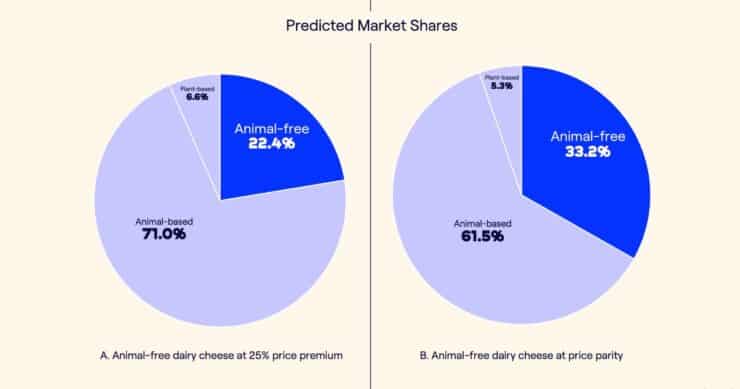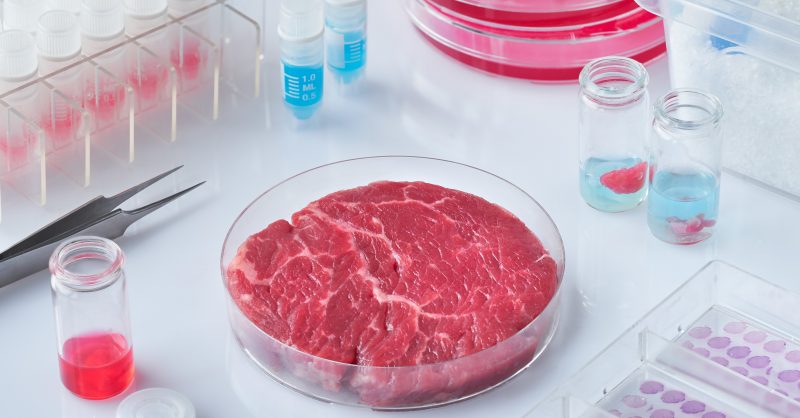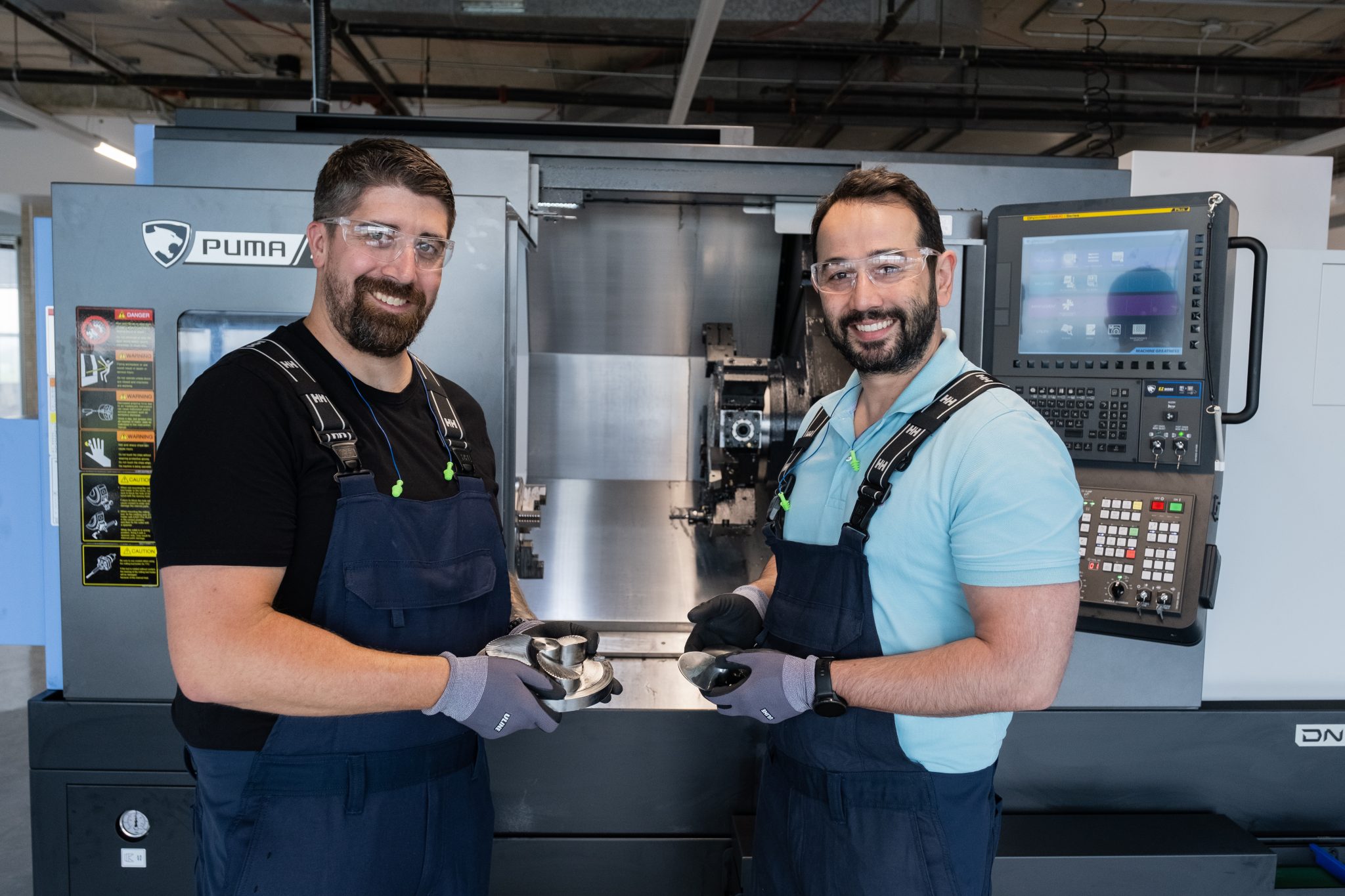Plant-based milk has been in the mainstream for several years now — nowadays it’s hard to find a cafe without at least one dairy alternative. But, slowly and surely, a new animal-free product is breaking out, one that isn’t made from plants at all but uses a technology similar to lab-grown meat: precision-fermented dairy. A new report, conducted by precision-fermentation company Formo and the University of Saskatchewan, shows that animal-free dairy has the potential to nab up to 33 percent of dairy’s current market share.

Animal-free dairy is made with all the same cells as animal-based dairy only created in a bioreactor, not a factory farm. In the U.S., companies like Perfect Day have had cultivated ice cream on the market since 2019. Formo, a leading company about to debut a line of animal-free cheeses in Europe, say their products have massive potential. The cheese “will win hearts and minds rapidly,” says Oscar Zollman Thomas, a researcher with Formo.
The Potential of Animal-Free Dairy, Explained
Lab-grown dairy is made in a process that’s similar to cultivated meat, although faster and more efficient. Companies will toss yeast, simple sugars and cow’s milk gene sequences into a bioreactor and create whey and casein, two of mammalian milk’s most important proteins. Fat and flavoring may then be added to create the perfect taste and texture.
The result is a product that looks, tastes, smells and feels essentially indistinguishable from cow’s milk. Formo says it has enacted rigorous blind taste testing and had conversations with European chefs to make sure the product will hold up when compared to animal cheese. Now, the new study argues this novel dairy product has the potential for a massive market disruption.
Researchers asked over a thousand UK residents about their hypothetical choices in a cheese aisle of a supermarket: three types of mozzarella, one plant-based option and one precision fermented option. The choices were also presented with different price points, intended to replicate how the product would initially debut with slightly higher prices that would come down over time.

The result was large support for animal-free cheese — nearly 65 percent of study participants said they would be willing to try the product. And only 21 percent of them are people who don’t normally eat cheese, indicating this push is driven by flexitarians and other meat-eaters.
Thomas feels the biggest driver is likely animal welfare. Consumers often have contradictory relationships with farmed animals – for example, nearly 50 percent of people in the U.S. would support a ban on factory farming but 99 percent of meat-eaters consume products from factory farms.
People are looking to replace cruel products with equal alternatives, says Thomas, “this was the most recognised advantage of precision fermentation.”
Another reason is the product itself. Cheese is a processed food, and consumers know it. Meat is often held out as a “natural” food (despite the fact that meat too is often processed), which is why some consumers cast off cultivated meat as ultra-processed and unhealthy. Formo doesn’t have to worry about that.
After seeing the support for precision products, the researchers then used statistical analysis to predict how much of the market share a company like Formo could potentially nab. If animal-free dairy is priced 25 percent above traditional dairy, it can take around 22 percent of the cheese market — but at price parity, it will reach a third.

** Click here to read the full-text **









